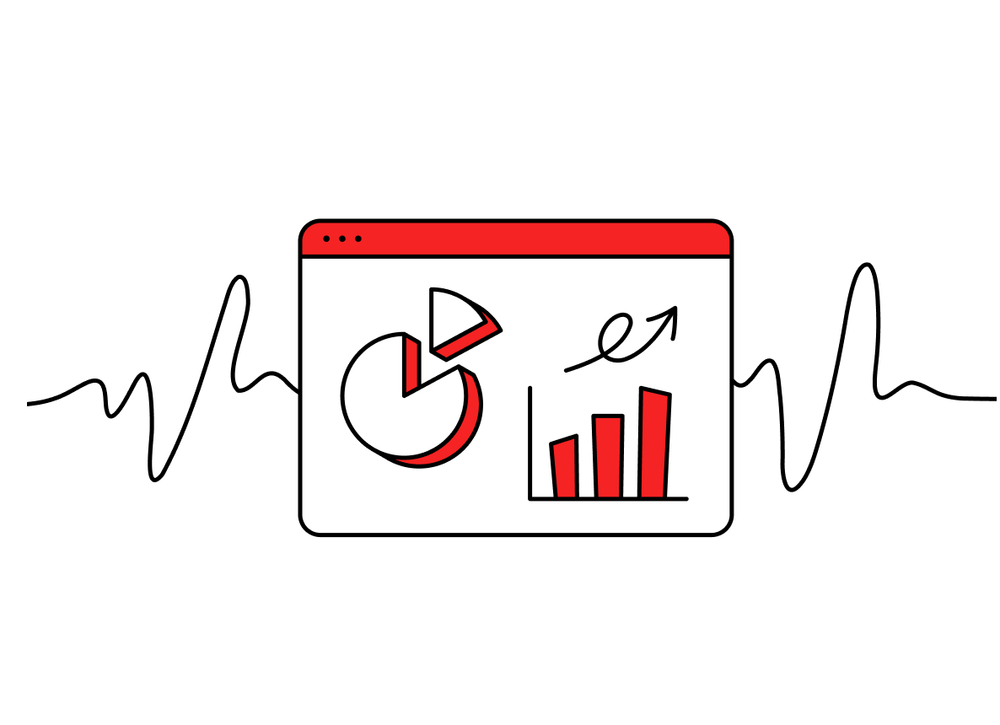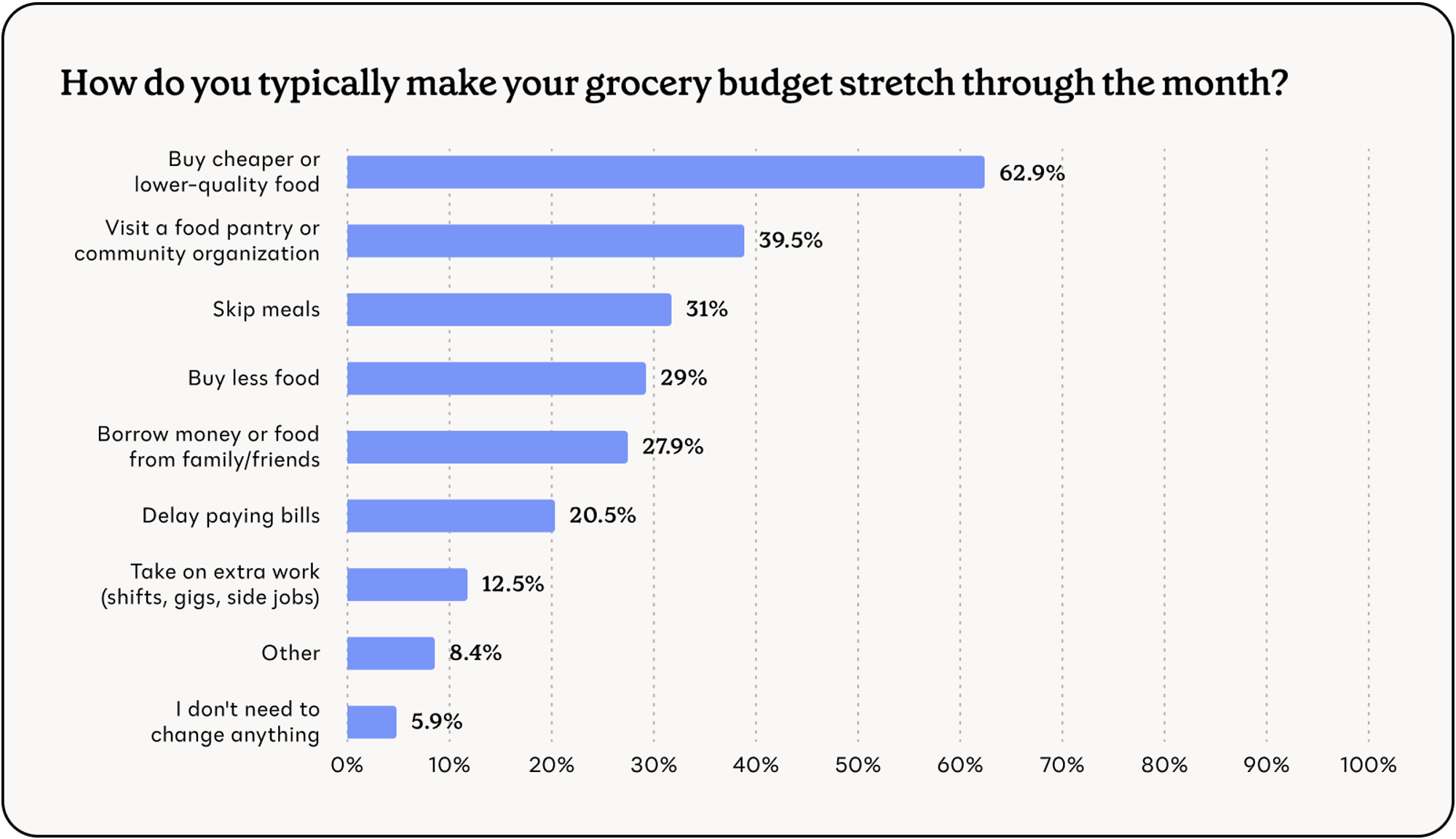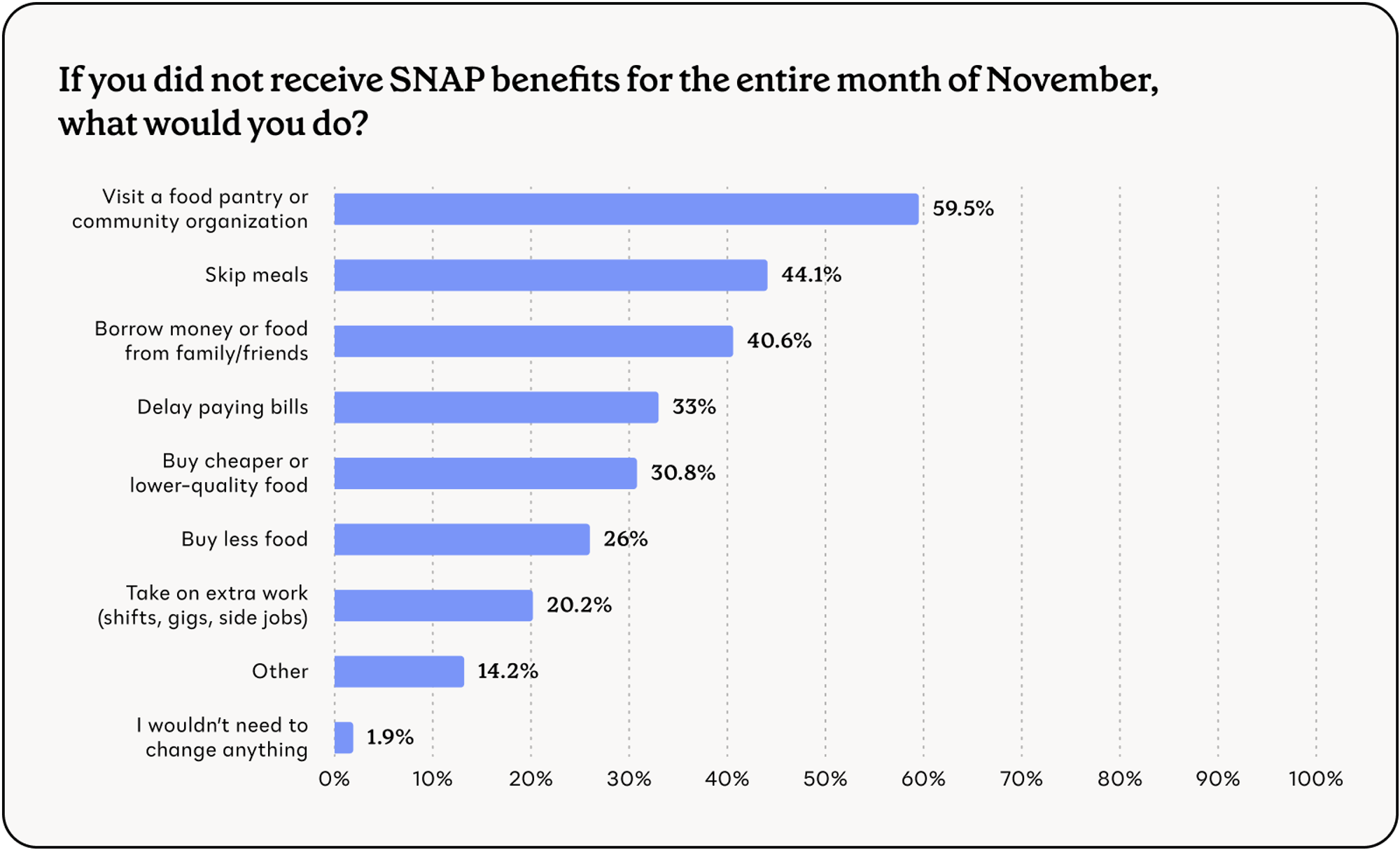Millions face crisis if November SNAP benefits are delayed


One in eight Americans currently receives SNAP (food stamp) benefits. As the federal government shutdown continues, families who rely on SNAP are bracing for the possibility that $8 billion of anticipated November benefits won’t arrive on time.
Propel ran a survey of 2,463 active SNAP recipients from October 20th to October 21st, 2025 to understand what that delay would mean for the 42 million Americans who rely on SNAP, and their responses reveal the massive societal impact that would result from a delayed (or missed) SNAP deposit.
Majority of SNAP recipients report benefits do not last the full month#majority-of-snap-recipients-report-benefits-do-not-last-the-full-month
Even before the shutdown, most SNAP households struggled to stretch their benefits to the end of a given month. Delaying a deposit will push already stretched families beyond the breaking point.
- 77% of respondents said their benefits typically last three weeks or less each month
- 38% said they run out in less than 2 weeks
- 9% said they run out within the first week
Households that receive SNAP already regularly employ creative strategies to make it through the month:

Most know a delay could happen. Few can prepare for it#most-know-a-delay-could-happen-few-can-prepare-for-it
Respondents were almost universally aware of the possibility of their November benefits being disrupted, but few had been able to take steps to prepare.
- 97.3% were aware of November benefits being at risk because of the shutdown
- The majority of respondents found out about the possibility of delayed benefits from the Propel app, social media, and their personal network
- 76.3% heard about the potential delays via the Propel app
- 57.2% via social media
- 36.2% via friends/families/neighbors
- 35% via news outlets
- 21.7% via the federal government
- 20% via their state
- 6.5%% via “other”
- 3.8% via their case worker
- Only about one in four respondents said they have been able to prepare for a possible delay
- The vast majority report no savings or alternative income to cover food costs if November benefits are postponed
I’m pregnant with a baby so nutrition and food is very paramount to me at this stage.
It would be detrimental to my health without my benefits.
— Destinee, SNAP recipient
Parents fear their kids will go hungry#parents-fear-their-kids-will-go-hungry
Many respondents shared the emotional toll induced by the potential impact on their benefits, especially when it comes to feeding their children.
- 61.5% report feeling “very unsupported” by government agencies or community organizations about what to expect during a shutdown
- 72.7% reported feeling "extremely stressed” about their household’s ability to afford food if benefits are not deposited in November
It wouldn’t bother me if it was just me, but I have children that need to eat and it terrifies me that they might go hungry because of the shutdown.
— Auntranelia, SNAP recipient
Survival tactics with painful trade-offs#survival-tactics-with-painful-trade-offs
Respondents shared their plans to deploy a wide array of strategies to help them cope with the loss of benefits, all of which come with their own additional costs for the household.
- 59.5% planned to visit food pantries
- 44.1% percent would skip meals
- 40.6% percent would have to borrow money or food from family or friends

As a parent of three children and a working individual, I am facing significant financial challenges. The current situation necessitates a difficult prioritization between essential expenses, such as food and household bills, including utilities and rent. All are critical for our survival.
— Jessica, SNAP recipient
A critical system for millions#a-critical-system-for-millions
It is well documented that not having enough to eat can create extreme consequences. Children in SNAP households who are farther removed from their last deposit date score worse on tests.¹ Financially motivated crimes increase among individuals who are farther from their last government benefit deposit.² These are forms of hardship that already play out in low income communities every month, but a missing SNAP deposit will be truly uncharted territory with significant consequences.
Please get this shutdown resolved. I will be starving if not I'm sure others families will be too. I really live off food stamps. Since I am both mentally and physically disabled, I am also on SSI, which means, after paying all my bills, I do not have any money left over to buy food, and that is where the food stamp program comes into play for me.
— Brian, SNAP and SSA recipient
¹Keenan Marchesi, The Impact of the SNAP Distribution Cycle on Student Non-Cognitive Outcomes (Clark University, 2019 draft).
²C. Fritz Foley, Welfare Payments and Crime (Harvard University and NBER, February 2008).